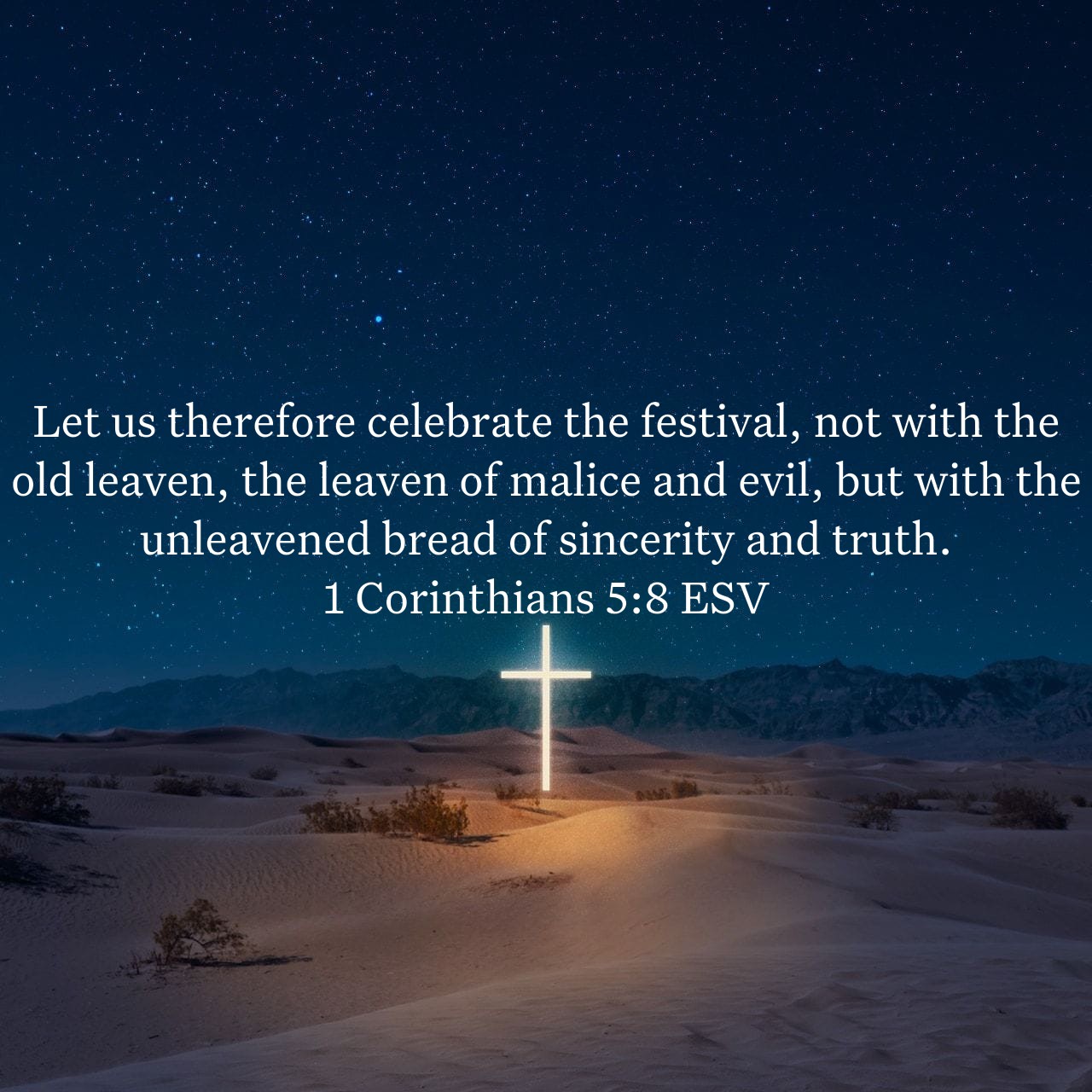Devotional 6 November 2025

Paul rebukes the Corinthians for their pride while sin spreads unchecked among them. Their boasting reveals that they had misunderstood the nature of the covenant they belong to. By invoking the imagery of Passover and the Feast of Unleavened Bread, Paul recalls the moment when Israel, redeemed by the blood of the lamb, was commanded to remove every trace of leaven from their homes (Exod. 12:15–20). Leaven symbolized corruption, and its removal marked their separation from Egypt and devotion to God.
In Christ, that ancient shadow has become reality. We are already “unleavened” because His blood has purified us (1 Pet. 1:18–19). Our deliverance from sin’s Egypt was secured when “Christ, our Passover Lamb, was sacrificed.” Therefore, the command to cleanse out the old leaven is not a demand to earn purity but to live according to the purity already given. To tolerate sin or boast in worldly wisdom is to bring the leaven back into the dough: to mix Egypt with the Promised Land, flesh with Spirit, the old covenant with the new.
Paul calls believers to “celebrate the festival,” not by a yearly ritual but by a life marked by sincerity and truth. Every day becomes a Passover remembrance, a covenant meal lived out in holiness. Christ is our true bread of life (John 6:35); He cannot be taken alongside the world’s corruptions. Our worship must therefore be singular and undefiled: Christ alone, without mixture, for He alone is worthy.